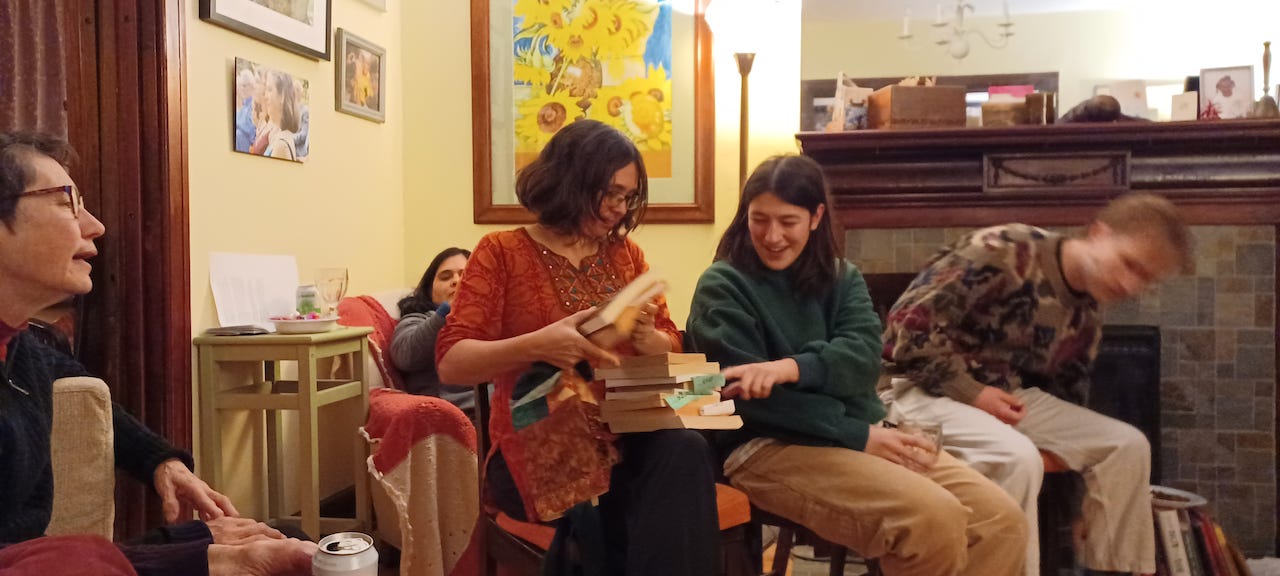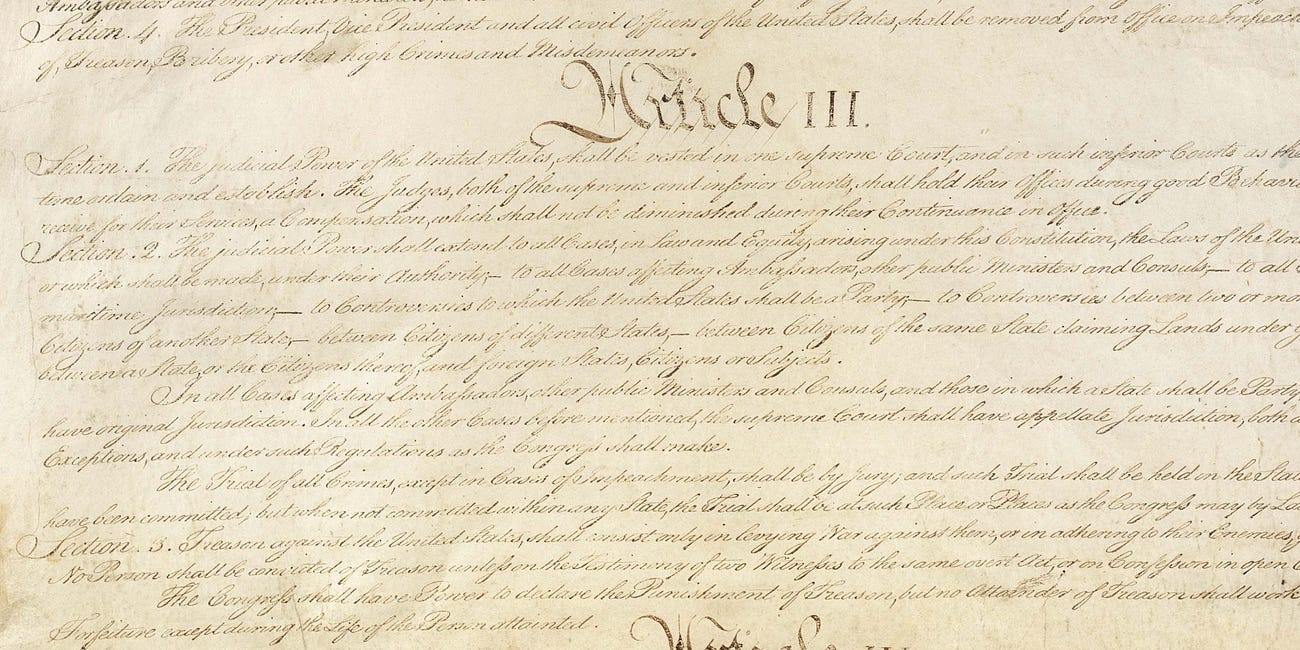Thinking Out Loud #3
A community Constitutional event
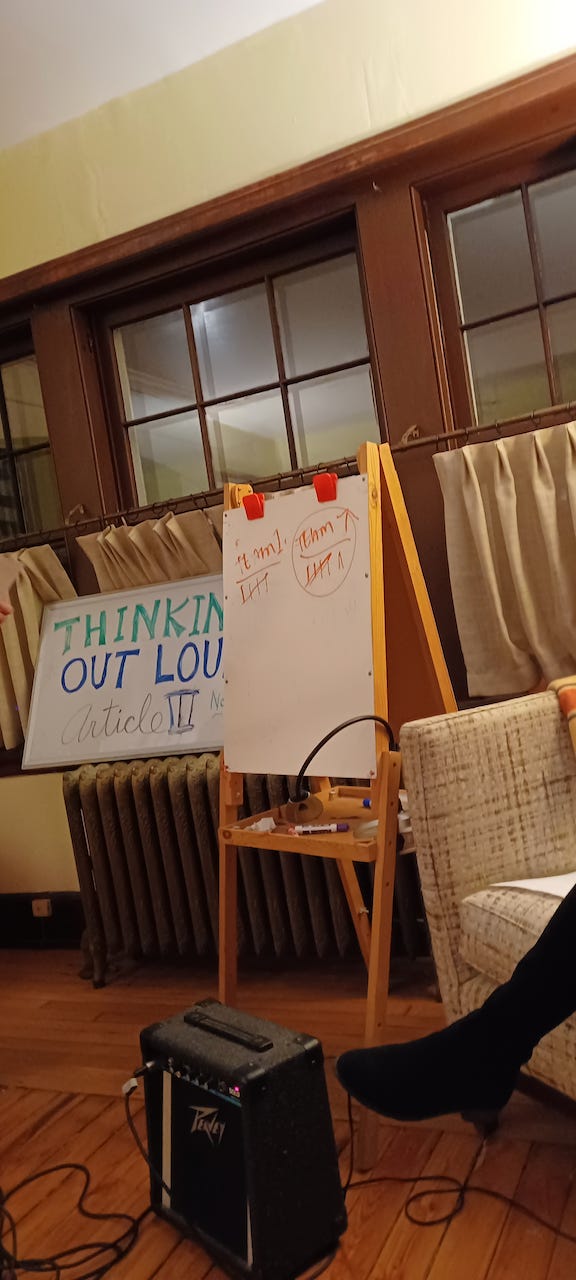
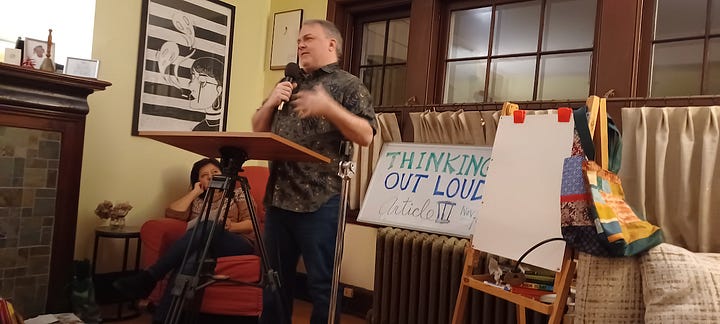
United States Constitution, Article III
Section 1. The judicial Power of the United States, shall be vested in one supreme Court, and in such inferior Courts as the Congress may from time to time ordain and establish. The Judges, both of the supreme and inferior Courts, shall hold their Offices during good Behaviour, and shall, at stated Times, receive for their Services, a Compensation, which shall not be diminished during their Continuance in Office.
Section 2. The judicial Power shall extend to all Cases, in Law and Equity, arising under this Constitution, the Laws of the United States, and Treaties made, or which shall be made, under their Authority;—to all Cases affecting Ambassadors, other public Ministers and Consuls;—to all Cases of admiralty and maritime Jurisdiction;—to Controversies to which the United States shall be a Party;—to Controversies between two or more States;—between a State and Citizens of another State,—between Citizens of different States,—between Citizens of the same State claiming Lands under Grants of different States, and between a State, or the Citizens thereof, and foreign States, Citizens or Subjects.
In all Cases affecting Ambassadors, other public Ministers and Consuls, and those in which a State shall be Party, the supreme Court shall have original Jurisdiction. In all the other Cases before mentioned, the supreme Court shall have appellate Jurisdiction, both as to Law and Fact, with such Exceptions, and under such Regulations as the Congress shall make.
The Trial of all Crimes, except in Cases of Impeachment, shall be by Jury; and such Trial shall be held in the State where the said Crimes shall have been committed; but when not committed within any State, the Trial shall be at such Place or Places as the Congress may by Law have directed.
Section 3. Treason against the United States, shall consist only in levying War against them, or in adhering to their Enemies, giving them Aid and Comfort. No Person shall be convicted of Treason unless on the Testimony of two Witnesses to the same overt Act, or on Confession in open Court. The Congress shall have Power to declare the Punishment of Treason, but no Attainder of Treason shall work Corruption of Blood, or Forfeiture except during the Life of the Person attainted.
In the aftermath of No King’s Day protests, two writing women in Pittsburgh, Jen Bannan and Hattie Fletcher, decided to organize a follow-up, a monthly event called “Thinking Out Loud,” welcoming friends and neighbors to gather for creative engagement with the Constitution. Each evening would focus on an Article of the Constitution, and eventually the Amendments, with creative offerings from invited writers, along with relevant trivia games and food and drink and fellowship. It started on the porch — the weather was warm then — and in November moved indoors.
A few photos from the November event — with Don Strange (above), Anjali Sachdeva, and Adriana Ramirez.
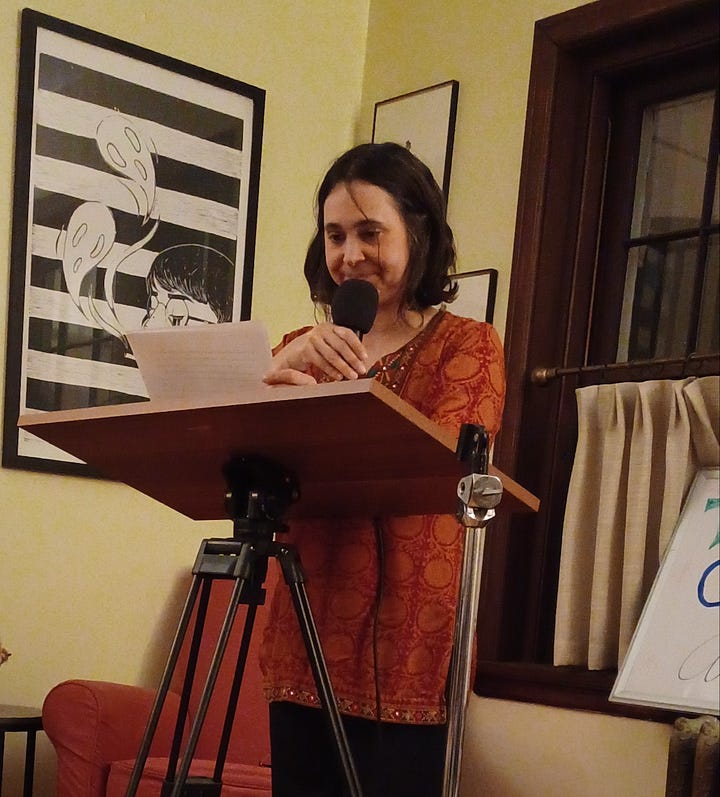
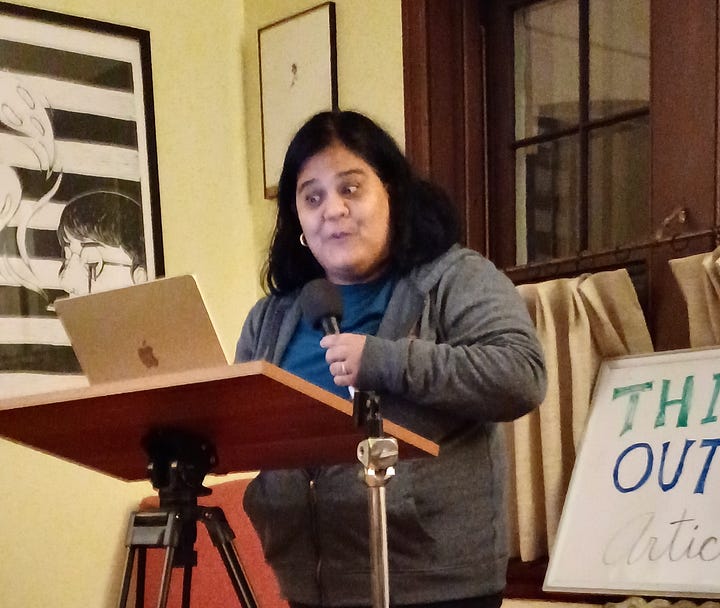
Missing here, in addition to all the brilliant words and imaginations, are the many who gathered, the fun and games and lively conversation, and the camaraderie shared around the snacks table.
I was also a reader that night, and my piece for the occasion, “Article III, October,” can be found here, with other “Little Misfits.”
Article III, October
This piece was assembled for the November 19 occasion of Thinking Out Loud, a Pittsburgh gathering for creative engagement with the Constitution, inspired by No King’s Day protests. More about this event can be found @nonabiding “Thinking Out Loud #3.”
For those in Pittsburgh, the next “Thinking Out Loud” evening, on Article IV, will be offered on Tuesday December 9. To find out more or to join the mailing list to keep up with the details and future gatherings, email Jen and Hattie at thingkingoutloudpgh @ gmail.com.


